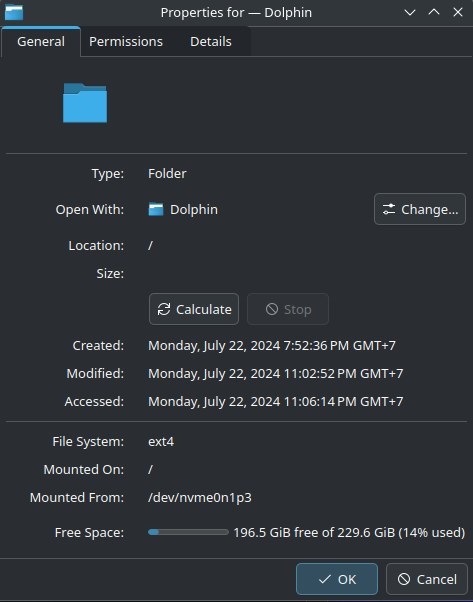this post was submitted on 22 Jul 2024
33 points (90.2% liked)
linux4noobs
2622 readers
1 users here now
linux4noobs
Noob Friendly, Expert Enabling
Whether you're a seasoned pro or the noobiest of noobs, you've found the right place for Linux support and information. With a dedication to supporting free and open source software, this community aims to ensure Linux fits your needs and works for you. From troubleshooting to tutorials, practical tips, news and more, all aspects of Linux are warmly welcomed. Join a community of like-minded enthusiasts and professionals driving Linux's ongoing evolution.
Seeking Support?
- Mention your Linux distro and relevant system details.
- Describe what you've tried so far.
- Share your solution even if you found it yourself.
- Do not delete your post. This allows other people to see possible solutions if they have a similar problem.
- Properly format any scripts, code, logs, or error messages.
- Be mindful to omit any sensitive information such as usernames, passwords, IP addresses, etc.
Community Rules
- Keep discussions respectful and amiable. This community is a space where individuals may freely inquire, exchange thoughts, express viewpoints, and extend help without encountering belittlement. We were all a noob at one point. Differing opinions and ideas is a normal part of discourse, but it must remain civil. Offenders will be warned and/or removed.
- Posts must be Linux oriented
- Spam or affiliate links will not be tolerated.
founded 2 years ago
MODERATORS
you are viewing a single comment's thread
view the rest of the comments
view the rest of the comments

You can try using
# du -h -d 1 /to locate the largest directory under/. Once you've located the largest directory, replace/with that directory. Repeat that until you find the culprit (if there is a single large directory).EDIT (2024-07-22T19:34Z): As suggested by @DarkThoughts@fedia.io, you can also use a program like Filelight, which provides a visual and more comprehensive breakdown of the sizes of directories.
You can use Filelight which is much simpler and more visual.
But it doesn't make you feel like hackerman
goddamn does it ever feel good to feel like a hackerman
ncdufor the terminal. Also enables you to delete folders/files.gdu is another alternative. It is sometimes faster than ncdu for me.
Agreed.
Df does that too, or did you mean
du?Whoops! You are correct — I have updated the original comment. I'm not sure why I wrote
dfinstead ofdu. This is a good example of why one should always be wary of blindly copying commands 😜 It begins to teeter on being potentially disastrous if I had instead wrotedd.Luckily the syntax wouldn't have worked if it was
ddYou're a life saver I finally found the culprit
Do tell! We need a follow up :)
It's "Steam" inside .local eat up 6GB even though I have not open it yet and tmp files (almost 5GB) that is not clear itself after installing the OS
A fresh Arch install included Steam? Or was this not a fresh install?
I install it during pacstrap
Ah, I see. Just be aware that any additional file size when you get to the stage you can install KDE is pretty much considered the "bloat" part of installs, meaning you only make arch as bloated as you want after that. I like filelight in KDE https://apps.kde.org/filelight/
Or you could use baobab to do the same thing if you want an answer within 10 minutes.
Or dust if you want it fastest with a pretty graph